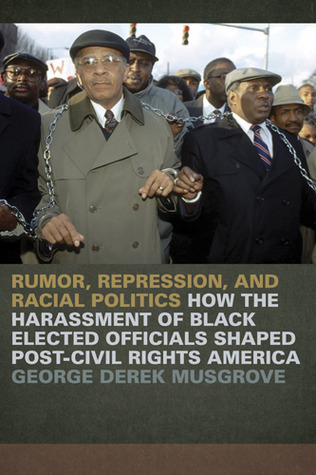
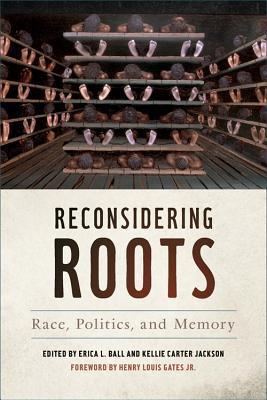
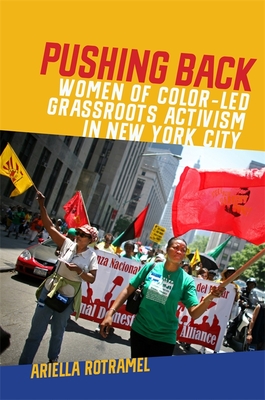
Since 1970: Histories of Contemporary America
Series · 8 books · 2012-2022
Books in series

#2
Rumor, Repression, and Racial Politics
How the Harassment of Black Elected Officials Shaped Post-Civil Rights America
2012
Historians have exhaustively documented how African Americans gained access to electoral politics in the mid-1960s, but few have scrutinized what happened next, and the small body of work that does consider the aftermath of the civil rights movement is almost entirely limited to the Black Power era. In Rumor, Repression, and Racial Politics, George Derek Musgrove pushes much further, examining black elected officials’ allegations of state and news media repression―what they called “harassment”―to gain new insight into the role of race in U.S. politics between 1965 and 1995.
Drawing from untapped sources, including interviews he conducted with twenty-five sitting and former black members of Congress, Musgrove tells new stories and reinterprets familiar events. His cast of characters includes Julian Bond, Adam Clayton Powell Jr., Alcee Hastings, Ronald Dellums, Richard Arrington, and Marion Barry, as well as white political figures like Newt Gingrich and Jefferson Sessions. Throughout, Musgrove connects patterns of surveillance, counterintelligence, and disproportionate investigation of black elected officials to the broader political culture. In so doing, he reveals new aspects of the surveillance state of the late 1960s, the rise of adversary journalism and good government reforms in the wake of Watergate, the official corruption crackdown of the 1980s, and the allure of conspiracy theory to African Americans seeking to understand the harassment of their elected leadership.
Moving past the old debate about whether there was a conscious conspiracy against black officials, Musgrove explores how the perception of harassment shaped black political thought in the post–civil rights era. The result is a field-defining work by a major new intellectual voice.

#5
Reconsidering Roots
Race, Politics, and Memory
2017
This wide-ranging interdisciplinary collection—the first of its kind—invites us to recon-sider the politics and scope of the Roots phenomenon of the 1970s. Alex Haley's 1976 book was a publishing sensation, selling over a million copies in its first year and winning a National Book Award and a special Pulitzer Prize. The 1977 television adaptation was more than a blockbuster miniseries—it was a galvanizing national event, drawing a record-shattering viewership, earning thirty-eight Emmy nominations, and changing overnight the discourse on race, civil rights, and slavery.
These essays—from emerging and established scholars in history, sociology, film, and media studies—interrogate Roots, assessing the ways that the book and its dramatization recast representations of slavery, labor, and the black family; reflected on the promise of freedom and civil rights; and engaged discourses of race, gender, violence, and power in the United States and abroad. Taken together, the essays ask us to reconsider the limitations and possibilities of this work, which, although dogged by controversy, must be understood as one of the most extraordinary media events of the late twentieth century, a cultural touchstone of enduring significance.
Contributors: Norvella P. Carter, Warren Chalklen, Elise Chatelain, Robert K. Chester, Clare Corbould, C. Richard King, David J. Leonard, Delia Mellis, Francesca Morgan, Tyler D. Parry, Martin Stollery, Dominic Meng-Hsuan Yang, Bhekuyise Zungu

#7
Pushing Back
Women of Color–Led Grassroots Activism in New York City
2020
This book explores women of color’s grassroots leadership in organizations that are not singularly identified with feminism. Centered in New York City, Pushing Back brings an intersectional perspective to communities of color as it addresses injustices tied to domestic work, housing, and environmental policies and practices. Ariella Rotramel shows how activists respond to injustice and marginalization, documenting the ways people of color and the working class in the United States recognize identity as key to the roots of and solutions to injustices such as environmental racism and gentrification.Rotramel further provides an in-depth analysis of the issues that organizations representing transnational communities of color identify as fundamental to their communities and how they frame them. Introducing the theoretical concept of “queer motherwork,” Rotramel explores the forms of advocacy these activists employ and shows how they negotiate internal diversity (gender, race, class, sexuality, etc.) and engage broader communities, particularly as women-led groups.Pushing Back highlights case studies of two New York–based organizations, the pan-Asian/American Organizing Asian Communities (formerly the Committee Against Anti- Asian Violence) and South Bronx’s Mothers on the Move/ Madres en Movimiento (MOM). Both organizations are small, women-led community organizations that have participated in a number of progressive coalitions on issues such as housing rights, workers’ rights, and environmental justice at the local, national, and global levels.
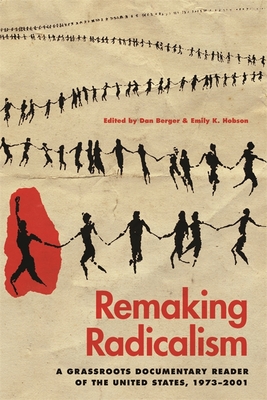
#8
Remaking Radicalism
A Grassroots Documentary Reader of the United States, 1973-2001
2020
This book brings together documents from multiple radical movements in the recent United States from 1973 through 2001. These years are typically viewed as an era of neoliberalism, dominated by conservative retrenchment, the intensified programs of privatization and incarceration, dramatic cuts to social welfare, and the undermining of labor, antiracist, and feminist advances. Yet activists from the period proved tenacious in the face of upheaval, resourceful in creating new tactics, and dedicated to learning from one another. Persistent and resolute, activists did more than just keep radical legacies alive. They remade radicalism—bridging differences of identity and ideology often assumed to cleave movements, grappling with the eradication of liberal promises, and turning to movement cultures as the source of a just future.
Remaking Radicalism is the first anthology of U.S. radicalisms that reveals the depth, diversity, and staying power of social movements after the close of the long 1960s. Editors Dan Berger and Emily Hobson track the history of popular struggles during a time that spans the presidencies of Richard Nixon and George W. Bush and bring to readers the political upheavals that shaped the end of the century and that continue to define the present.

#9
Deep Cut
Science, Power, and the Unbuilt Interoceanic Canal
2020
This book is openly available in digital formats thanks to a generous grant from the Andrew W. Mellon Foundation.
The Atlantic-Pacific Central American sea-level canal is generally regarded as a spectacular failure. However, Deep Cut examines the canal in an alternative context, as an anticipated infrastructure project that captured attention from the nineteenth through the late twentieth centuries. Its advocates included naturalist Alexander von Humboldt, physicist Edward Teller, and U.S. presidents John F. Kennedy, Lyndon Johnson, and Jimmy Carter. The waterway did not come to fruition, but as a proposal it served important political and scientific purposes during different eras, especially the years spanning the Cold War and the “environmental decade” of the 1970s.
Historian Christine Keiner shows how the evolving plans for the sea-level ship canal performed distinct kinds of work for diverse historical actors in light of shifting scientific, environmental, and diplomatic values. Dismissing it as a failed scheme prevents us from considering the political, cultural, and epistemological processes that went into constructing the seaway as an innovative diplomatic solution to rising U.S.-Panama tensions, an exciting research opportunity for evolutionary biologists, a superior hydrocarbon highway for the oil industry, or a serious ecological threat to marine biodiversity.
Invoking past dreams and nightmares of peaceful nuclear explosives, invasive sea snakes, and the 1970s energy crisis, Deep Cut uses the Central American seaway proposal to examine the changing roles of environmental diplomacy and state-sponsored environmental impact assessment. More broadly, Keiner amplifies an emerging conversation around the environmental, scientific, and political histories and legacies of unrealized megaprojects.
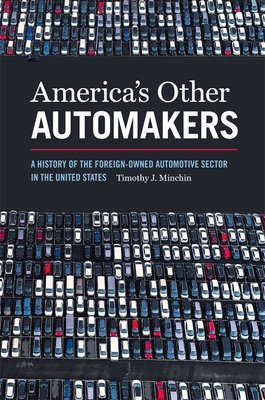
#10
America’s Other Automakers
A History of the Foreign-Owned Automotive Sector in the United States
2021
In 2018 almost half of all vehicles made in North America were produced at foreign-owned plants, and the sector was on track to monopolize the market. Despite this, the industry has been overlooked compared with its domestic counterpart, both in scholarship and popular memory. Redressing this neglect, America's Other Automakers provides a new history of the foreignowned auto sector, the first to extensively draw on archival sources and to articulate the human agency of participants, including workers, managers, and industry recruiters.
Timothy J. Minchin challenges the view that the industry's growth primarily reflected incentives, stressing human agency and the complexity of individual stories instead. Deeply human in its approach, the book also explores the industry's impact on grassroots communities, showing that it had more costs than supporters acknowledged. Drawing on a wide range of primary and secondary sources, America's Other Automakers uncovers significant tensions over unionization, reports of discriminatory hiring, and unease about the industry's rapid growth, critically exploring seven large assembly facilities and their impact on the communities in which they were built.
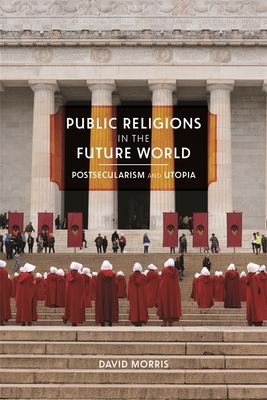
#11
Public Religions in the Future World
Postsecularism and Utopia
2021
Public Religions in the Future World is the first book to map the utopian terrain of the political-religious movements of the past four decades. Examining a politically diverse set of utopian fictions, this book cuts across the usual Right/Left political divisions to show a surprising each political-religious vision imagines a revived world of care and community over and against the economization and fragmentation of neoliberalism. Understanding these religions as utopian movements in reaction to neoliberalism, Public Religions invites us to rethink the bases of religious identification and practice. Offering new insights on texts from the Left Behind series to the novels of Octavia Butler, Public Religions shows that the utopian energy of the present opens new opportunities for political organizing and genuine, lasting community building.
Public Religions in the Future World presents a literary history of the political-religious present, arguing that the power of public religion lies in the utopian visions that underlie religious beliefs. It shows that contemporary literary utopianism is deeply inflected with religious ideas, with the visions, values, and ambitions of Christianity, Islam, nature mysticism, and other traditions. Further, Public Religions demonstrates that this utopianism’s religiosity is in turn politically inflected, that it resonates with and underwrites a range of competing political those of imperialism, globalization, neoliberal capitalism, deep ecology, and the pro-migration movement.
David Morris constructs a working theory of how religion makes large-scale interventions in political debates. The novels in his study draw on religious traditions to articulate visions, programs, or missions for achieving some version of an improved world. In doing so, they undertake the work of literary to represent globality, to recover the voices of the underrepresented, and to imagine a future that escapes the destructiveness of global capitalism.
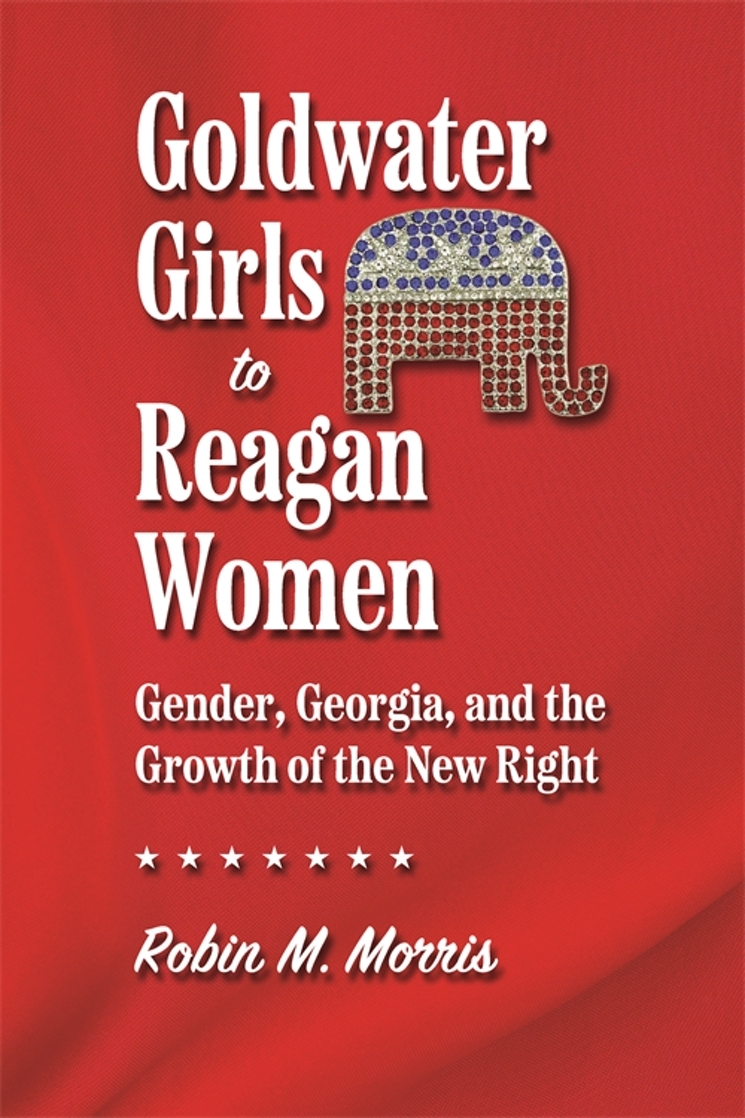
#12
Goldwater Girls to Reagan Women
Gender, Georgia, and the Growth of the New Right
2022
Goldwater Girls to Reagan Women is a statewide study of women's part in the history of conservatism, the New Right, and the Republican Party in the state of Georgia. Robin M. Morris examines how the growth of the Republican Party in the 1960s and 1970s was due in large part to the political activism of white women. The book begins with the African American women who established the Georgia Federation of Republican Women and follows how they lost the organization and the party to white women moving to the Sunbelt South. Conservative white women developed a language and strategy of family values that they deployed to battle school busing, defeat the Equal Rights Amendment, and elect Republican leaders even in Jimmy Carter's home state.
Morris uses original interviews and archival research in personal papers of women activists in the Georgia New Right movement, including Lee Ague Miller, Beth Callaway, Kathryn Dunaway, Lee Wysong, and Hattie Greene, to reveal the motivations and actions that transformed the state from blue to red. In this era, perceived threats to family life and traditional values spurred women-led grassroots organization that enabled broad political shifts on the state level. Conservative women carved out their political niche as they consolidated and expanded their power and influence. Rather than a male-dominated, top-down approach, Morris centers her historical account on the middle-class white women whose actions changed the political landscape of the state and ultimately the country.
Authors
Timothy J. Minchin
Author · 4 books
Timothy J. Minchin is professor of history and deputy head of the School of Historical and European Studies at La Trobe University. He is a recipient of the Richard A. Lester Prize from Princeton University and a Fellow of the Australian Academy of the Humanities. He has published widely on recent American history, especially that of the southern states. He lives in Melbourne, Australia.
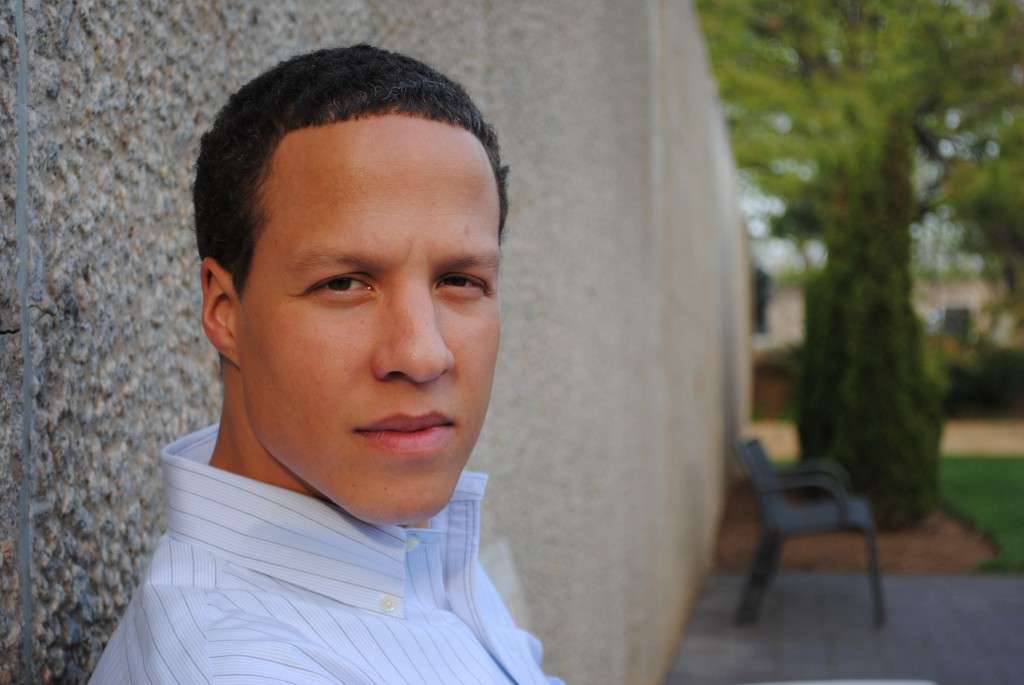
George Derek Musgrove
Author · 2 books
G. Derek Musgrove, Ph.D. is an Assistant Professor of history at the University of Maryland Baltimore County. He is the author of Rumor, Repression, and Racial Politics: How the Harassment of Black Elected Officials Shaped Post-Civil Rights America (University of Georgia Press, 2012) which examines black elected officials' allegations of state and news media "harassment" over the course of the post civil rights period. Dr. Musgrove has received the 2003-2004 Anne E. Plato predoctoral fellowship at Trinity College in Hartford, Connecticut and the 2007-2008 postdoctoral fellowship in the Center for African American Urban Studies and the Economy at Carnegie Mellon University to support his work. He received his Ph.D. in U.S. history from New York University in 2005.
David Morris
Author · 4 books
David Morris, author of Tactical Firearms Training Secrets, is a specialist in practical firearms training and survival techniques. His book, published in 2012, focuses on teaching tactical skills that can be practiced at home using methods like dry firing and airsoft. It emphasizes cost-effective ways to develop advanced shooting skills without extensive range time. Morris is also known for offering advice on broader preparedness topics in other works, including urban survival.